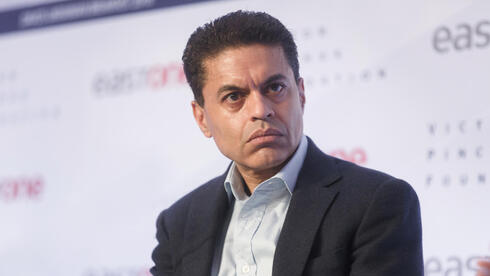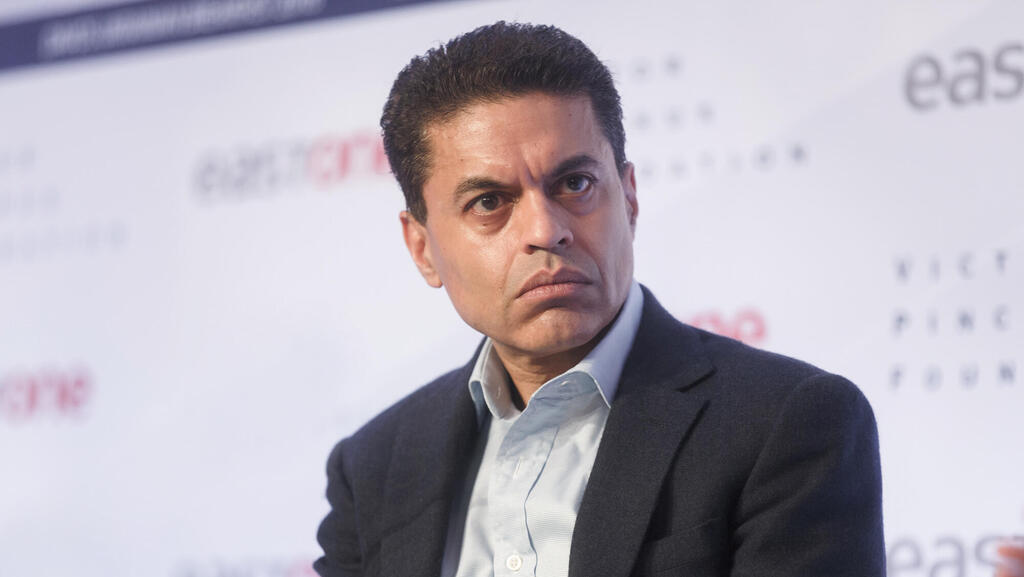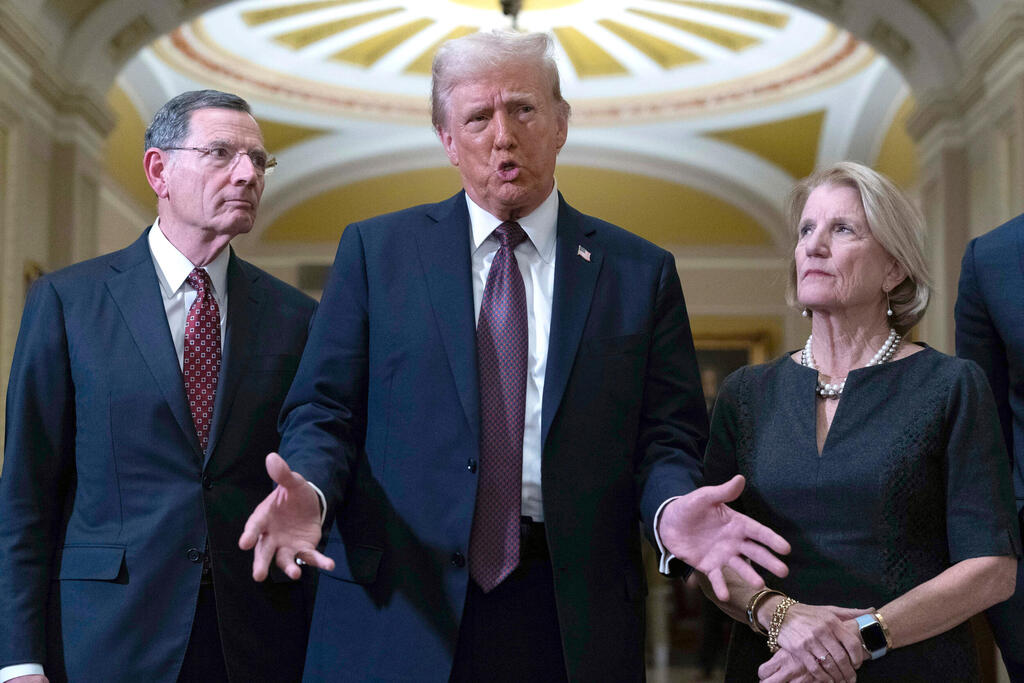
Interview
Dr. Fareed Zakaria: "People vote based on cultural identification, not purely economic considerations"
Zakaria, a journalist and host at The Washington Post and CNN, delves into how the left's embrace of technocratic liberalism failed to connect with the working class, fueling a growing resentment.
Dr. Fareed Zakaria, you are a journalist, host of your own program on CNN, a columnist for The Washington Post, and the author of eight published books to date. In one of your recent articles, you explained that “the crisis of democracy is the crisis of the left.” What happened to the left?
“Since the fall of the Berlin Wall, the world we live in has been shaped, to a large extent, by the seismic shift caused by the collapse of communism and the dissolution of the Soviet Union. As a result, the political left has experienced a significant decline. After the end of the Soviet Union, politicians such as Bill Clinton and Tony Blair reshaped the left almost everywhere in the world, giving rise to a center-left movement that embraced the free market, globalization, free trade, immigration, and open technological platforms. They formulated a new narrative, which even right-wing politicians at the time adopted and acted on.
“This approach aligned closely with the technocratic-liberal consensus emerging among elites in most Western societies. We witnessed an extraordinary combination of capitalist elites and intellectual elites, as seen during the eras of Clinton and Obama—figures who were beloved by Wall Street, the tech sector, and academia alike.
“What is happening today is a backlash against this consensus—a fierce opposition to the liberal-left-center technocracy that has dominated the last three decades. The left has become the primary target of this backlash because it was in power, drove this agenda, and shaped the values of the system. A significant portion of the general public felt that these values and policies did not address their needs or represent them. They felt invisible, and in recent years, they have responded sharply.
“There are local differences: in Israel, for example, the rejection of the left is primarily tied to the Palestinian issue. But the general narrative I describe holds true across much of the Western world.”
Why is this happening?
“Part of it stems from economics: globalization, automation, and technology—three interconnected and mutually reinforcing forces—have created a world with a significant gap between skilled and unskilled labor. Professor Robert Reich (Secretary of Labor under Clinton) explained this well when he said that if you are a ‘symbolic analyst’—someone who works with numbers, computer code, words, or graphics—your job has become increasingly valuable over the past 30 years. Conversely, if you work with physical things, such as driving a taxi or working in a factory, your economic power has diminished significantly.
“However, it’s not just about economics. The cultural element in this backlash is often overlooked but deeply significant. People who are not highly educated and who often don’t live in big cities experience a profound sense of alienation and frustration with liberal, urban, cosmopolitan elites. This phenomenon has deep cultural roots.
“Take Joe Biden’s administration as an example: Biden has arguably done more than any president since Lyndon Johnson to help the working class through generous socioeconomic policies. But what was the result? He lost support from those very voters.
“Furthermore, Kamala Harris lost even more support among the uneducated working class than Biden; Biden received less support than Obama; and Obama lost more support in this demographic than Clinton. The working class, particularly the white working class, no longer sees the Democratic Party as representing them culturally. This is not merely opposition to specific policies but a deeper cultural disconnect—a kind of ‘tribal rejection’ that is far more powerful. This same tribal rejection of the left has fueled the rise of the new populist right.
“The situation is similar in Israel, where large parts of the population no longer perceive the old Ashkenazi elite as trustworthy.”
"We want a transparent government with common sense"
There is an inherent contradiction here because the same people who feel frustrated and alienated have abandoned leaders who adopted policies promoting social welfare, public investment, and taxation of the rich, instead electing millionaire white men—like Trump or Netanyahu—who represent the elite.
"Indeed, both Trump and Netanyahu are part of the cultural elite. Netanyahu belongs to the Ashkenazi elite, and Trump is a wealthy man who grew up in New York and studied at the University of Pennsylvania. Yet, they have managed to create a sense of solidarity with their audience because the key to understanding is that culture often matters more than economics. People frequently vote against their economic interests. This is true on both sides of the political spectrum: educated professionals vote for parties that promise to raise their taxes, while the working class votes for right-wing populist parties that advocate cuts to welfare budgets.
"In other words, people vote based on cultural identification, not purely economic considerations. Trump and Netanyahu have successfully positioned themselves as having the 'right enemies.' They portray themselves as standing against disconnected elites, which strengthens the sense of solidarity among their supporters. Their message is: 'I see you.'”
In your column, you described the migration from states like New York to Florida, attributing it partly to the failure of New York’s policies, which collected high taxes, increased debt, and failed to deliver results. Does this reflect a desire for less government involvement?
"People want less government in the sense that they associate government policy with technocratic elites who seem disconnected from the public and 'don’t see' them. These elites have made the government feel too elitist, technocratic, and domineering. The COVID-19 pandemic illustrates this well. People lost trust in government officials—those technocrats who said the economy and education system should be shut down. The same technocrats were also responsible for decisions like the Iraq war and the 2008 financial crisis. People say: 'These guys don’t know what they’re doing.'
"That said, it’s not that people want the government abolished—they are not libertarians. They want a simple, efficient, transparent, and common-sense government. Instead, they perceive the government as bloated, corrupt, and overly powerful. Taxpayers ask: 'If I pay so much in taxes, why are housing costs sky-high, and why are so many people living on the streets?'
"It’s a matter of common sense. The left hasn’t done enough self-reflection, particularly in blue [Democratic-controlled] cities where the left has been in power for decades—50, 60, or even 70 years in some cases. In many of these cities, bureaucracy, budgets, and corruption have grown, but management has worsened, and public services have deteriorated. I don’t think the public has forgotten the importance of a welfare system, but they are demanding it be more efficient and transparent. We need to find a way to balance the need for a social safety net with the demand to reduce corruption and bureaucracy."
"Giving enormous power to the extremes"
Given the rise in inequality, it seems impossible to leave everything to the "invisible hand of the markets."
"This is an important point. We’re seeing interesting experiments on the right, including in the U.S., to promote a libertarian agenda. For example, Elon Musk talks about cutting $2 trillion in government spending and reducing bureaucracy, but he forgets that people are not libertarians. They like Social Security, Obamacare, and unemployment benefits. People want a safety net but will not tolerate corruption and poor management.
"The challenge for right-wing leaders like Musk and Vivek Ramaswamy (expected to lead the new Department of Government Efficiency) is to understand that their mandate is not to slash the federal budget drastically. That was not Trump’s mandate, and if he tries to do that, there will be significant backlash. The country is still in the center."
So maybe the crisis isn’t just on the left—perhaps we are left without a center.
"You’re right to some extent. In America, a country almost evenly split politically, ideological opponents on both sides quickly interpret everything in extreme terms. Consider Biden: he ran as a centrist but, upon taking office, pursued a Roosevelt- or Johnson-style presidency with an extreme progressive agenda, especially on social issues. This took him too far left. Similarly, Trump could fall into a similar trap.
"It’s crucial to remember that in the last 25 years, U.S. presidential elections have been decided by slim margins—2% at most, except for Obama’s victory after the 2008 crisis. The political landscape is divided, but political structures, media, and institutions disproportionately empower the extremes.
"Social media amplifies the loudest voices. Fundraising mechanisms favor the most passionate, often extreme donors. And in the primaries, only about 10% of each party’s base participates—again, the most extreme voices. Meanwhile, the largest voting bloc remains independents—neither Republican nor Democrat—but they are underrepresented.
"Most Americans don’t watch Fox News or CNN; they watch sports. Yet, those shaping the political agenda are the minority who consume partisan media. This creates a disconnect because the majority—the centrists—are not represented in the current system."
How can this be fixed?
"Sometimes a particularly charismatic candidate, like Obama, can unite people and drive voter turnout. But Obama’s coalition didn’t last beyond his presidency, which isn’t a structural solution.
"We need to reform the primary system—perhaps abolish it or open it to all voters—to allow broader representation. Social media, another deep issue, also requires reform. Over time, changing technologies, perhaps even artificial intelligence, might bring new platforms that address this problem.
"Right now, the numbers are in the center, but the intensity is on the extremes. Social media amplifies this intensity because that’s its business model."
In a few days, the second Trump administration will begin. History shows that populists’ second terms can be turbulent.
"In Trump’s first term, he didn’t expect to win, so he selected many Republican establishment figures for key positions, including generals with strong institutional leanings. But in his second term, he has avoided such figures. He now chooses individuals like Kash Patel, who disdain democratic institutions.
"The issue isn’t that Trump is anti-democratic—he simply wants to do what he wants. If democratic institutions get in the way, he ignores them. For example, his plan to pardon those involved in the January 6 Capitol riot is troubling, as it undermines the peaceful transfer of power, a cornerstone of democracy.
"There will be challenges to democratic norms, but resistance will remain. America still has a Constitution, strong courts, an opposition, and checks and balances in Congress. These institutions will push back."
"Trump must win, and you must lose"
What really worries you about his second term?
"The international arena. The U.S. president has very few limitations in this area. That’s where I see less 'checks and balances.' If Trump decides to say, 'I don’t care about the global order of free trade and international law,' and acts solely according to his personal agenda, it will be deeply problematic. The global order established after 1945, which has benefited everyone — including the U.S. — is now under threat from the 'axis of resistance': China, Russia, and Iran. These threats are very real.
"We are facing challenges to the global order in three major regions of the world — the Middle East, Europe, and Asia — from revisionist forces. If, at the same time, the global superpower responsible for upholding this order says, 'I don’t care,' and starts pressuring and even blackmailing its allies for concessions, we’ll find ourselves in a much more chaotic and fragile world.
"Everyone will regret this outcome because it will create a harder, less stable world for all. Ultimately, if the U.S. doesn’t abide by the rules, norms, and laws it helped create, why should anyone else? The Chinese will say it, the Russians will say it, and that’s the most worrying part. In the international arena, the president has almost no constraints — no courts, no Congress to hold him back."
It seems as if Trump wants to "out-Putin Putin" and "out-Xi Xi"...
"He has always admired them! Notice that he has never said a good word about any democratic leader — not even Bibi Netanyahu, whom he likes. That’s because, in his eyes, democratic leaders are bogged down by people constantly shouting over their heads. In contrast, he praised Putin even after the invasion of Ukraine, calling him 'brilliant.'
"This admiration stems from his respect for leaders who are entirely self-serving, who exercise absolute control without institutional opposition. Trump’s worldview is highly transactional. He is like a businessman who believes only in the deal itself, not in the relationships surrounding it.
"But great leaders, like great businesspeople, understand that relationships are as important as the deals they make. For Trump, there is no concept of 'win-win.' In his mind, he must win, and you must lose. Only then does he feel that he has made a good deal."
















